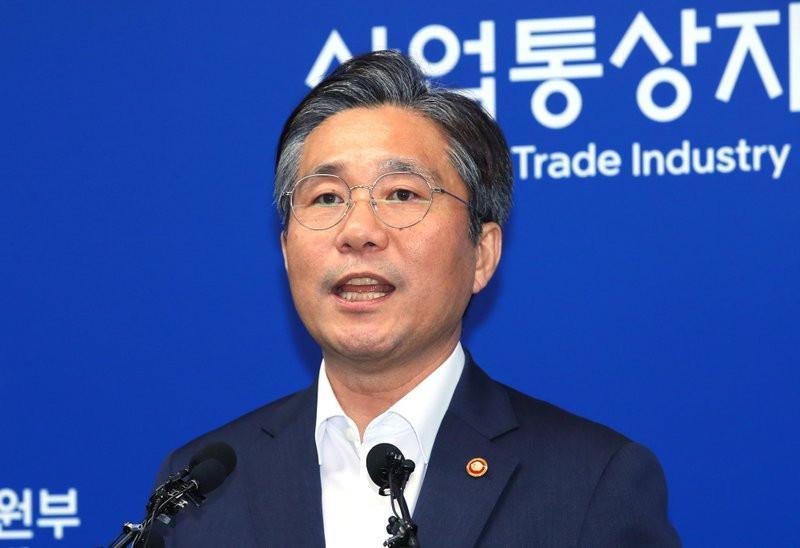
South Korea said on Aug.12 it plans to drop Japan from its "white list" of countries with fast-track trade status from September, a tit-for-tat move that deepens a diplomatic and trade rift between the two countries.
The tighter trade regulations, including potential lengthy permit application processes, will apply to South Korean exports to Japan.
Industry Minister Sung Yun-mo said that Japan would be put in a newly-created trade category of countries that have not run their export control systems in line with "international export control principles".
Park Tae-sung, a senior South Korean trade ministry official, added that Japan had been designated the first country in the new group because of inappropriate trade practices, but did not provide details.
Relations between the two countries have soured since a ruling by South Korea's Supreme Court last year that Japanese companies should compensate South Koreans who were conscripted as forced labourers during World War Two.
The Japanese government did not immediately issue a public response to Aug. 12's announcement, but a senior foreign ministry official told broadcaster NHK that a response would come after more analysis of the details of South Korea's decision.
Another foreign ministry official said that Tokyo was not expecting an immediate impact, NHK reported.
Japan announced earlier this month that it was removing South Korea from its own "white list" of countries that have enjoyed minimum trade restrictions, citing an erosion of trust.
That followed Japan's imposition in July of tighter curbs on exports to South Korea of materials used to make smartphone chips, South Korea's top export item. Tokyo last week granted the first shipment of high-tech materials to South Korea since those restrictions were enforced.
South Korean President Moon Jae-in said Japan's economic retaliation is not only intrinsically unfair, but unjust because it stems from Japan's colonial-era abuses.
Still, South Koreans should not react emotionally and should maintain constructive ties with the Japanese people, Moon said at a meeting of senior aides on Aug. 12.
"We should take deep breaths to consider a fundamental countermeasure in a vehement yet calm manner," he said.
In a bid to cut its reliance on Japanese imports, South Korea last week announced plans to invest about 7.8 trillion won ($6.48 billion) in research and development for local materials, parts and equipment over seven years.
"The government will pursue an elaborate and detailed strategy to more substantively develop our economy by taking Japan's economic retaliation as a chance to turn good out of evil," Moon said.
Sung said he was ready to talk with Japanese officials any time Tokyo requests a meeting.